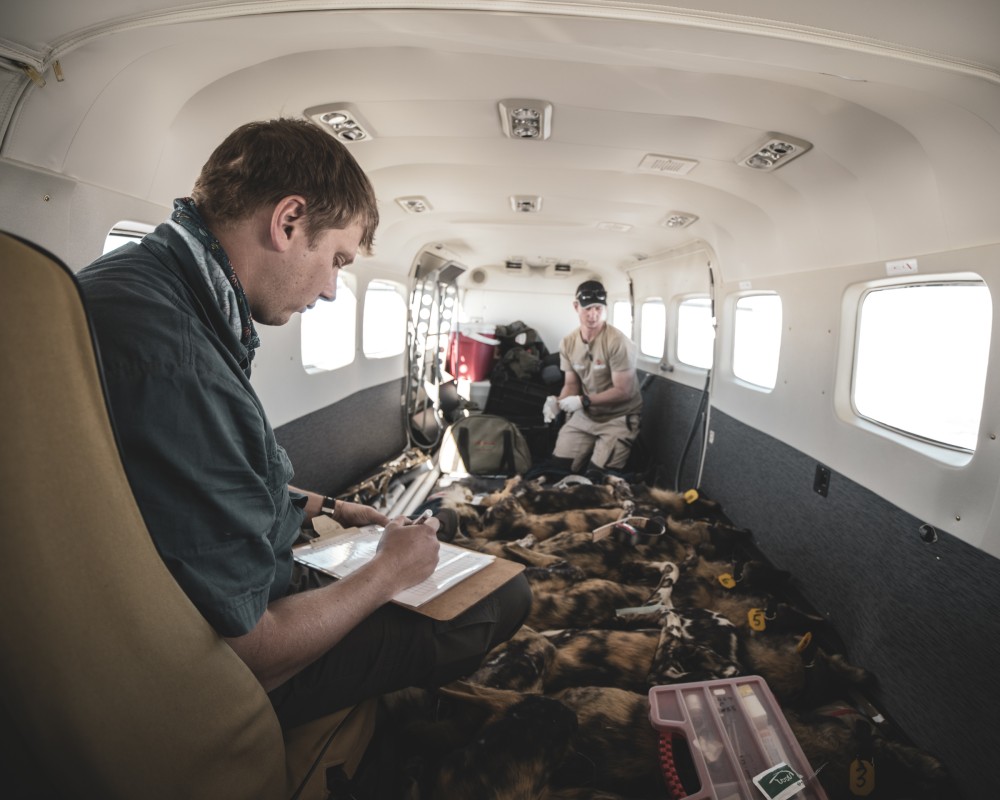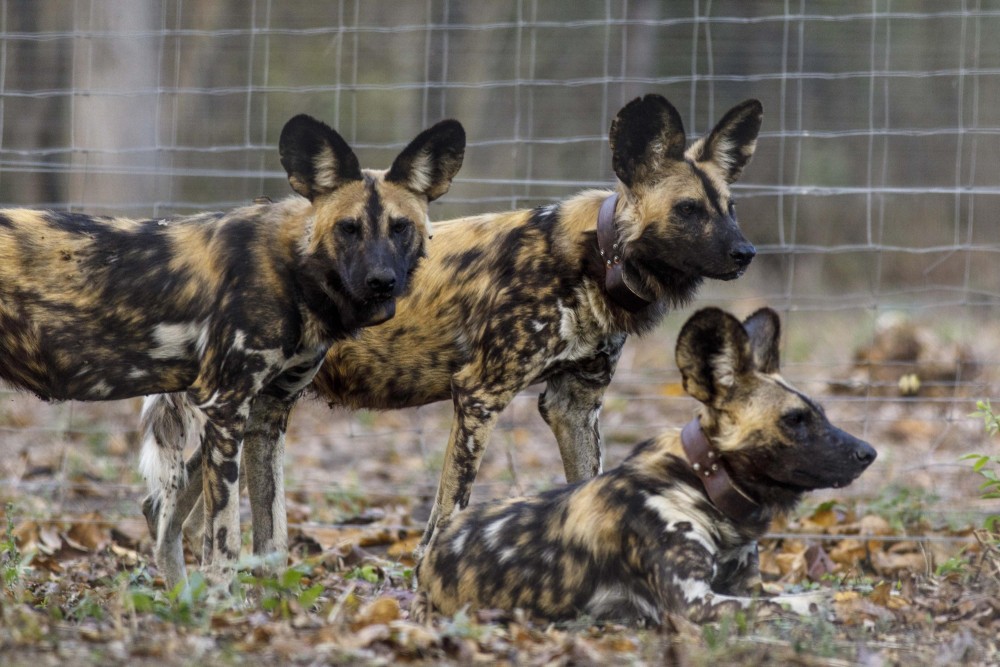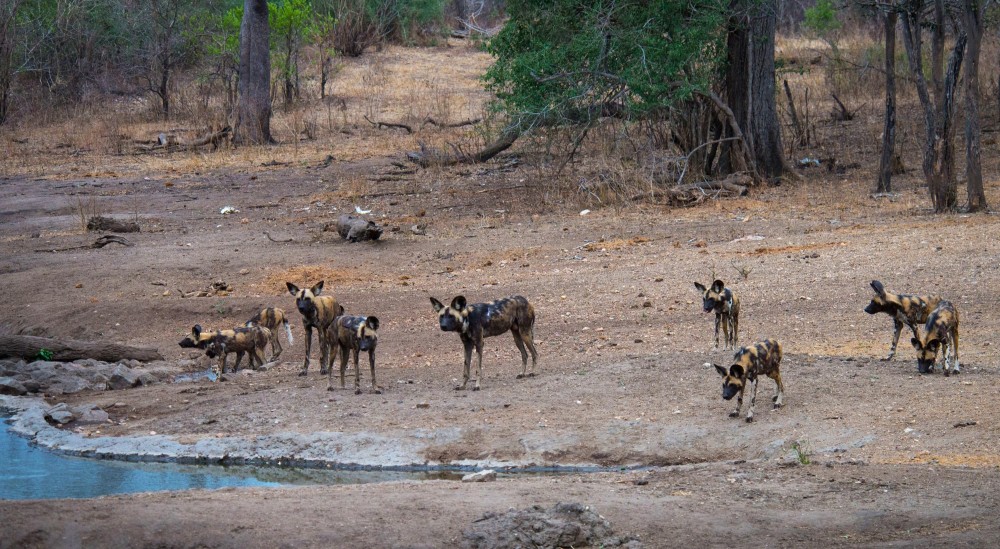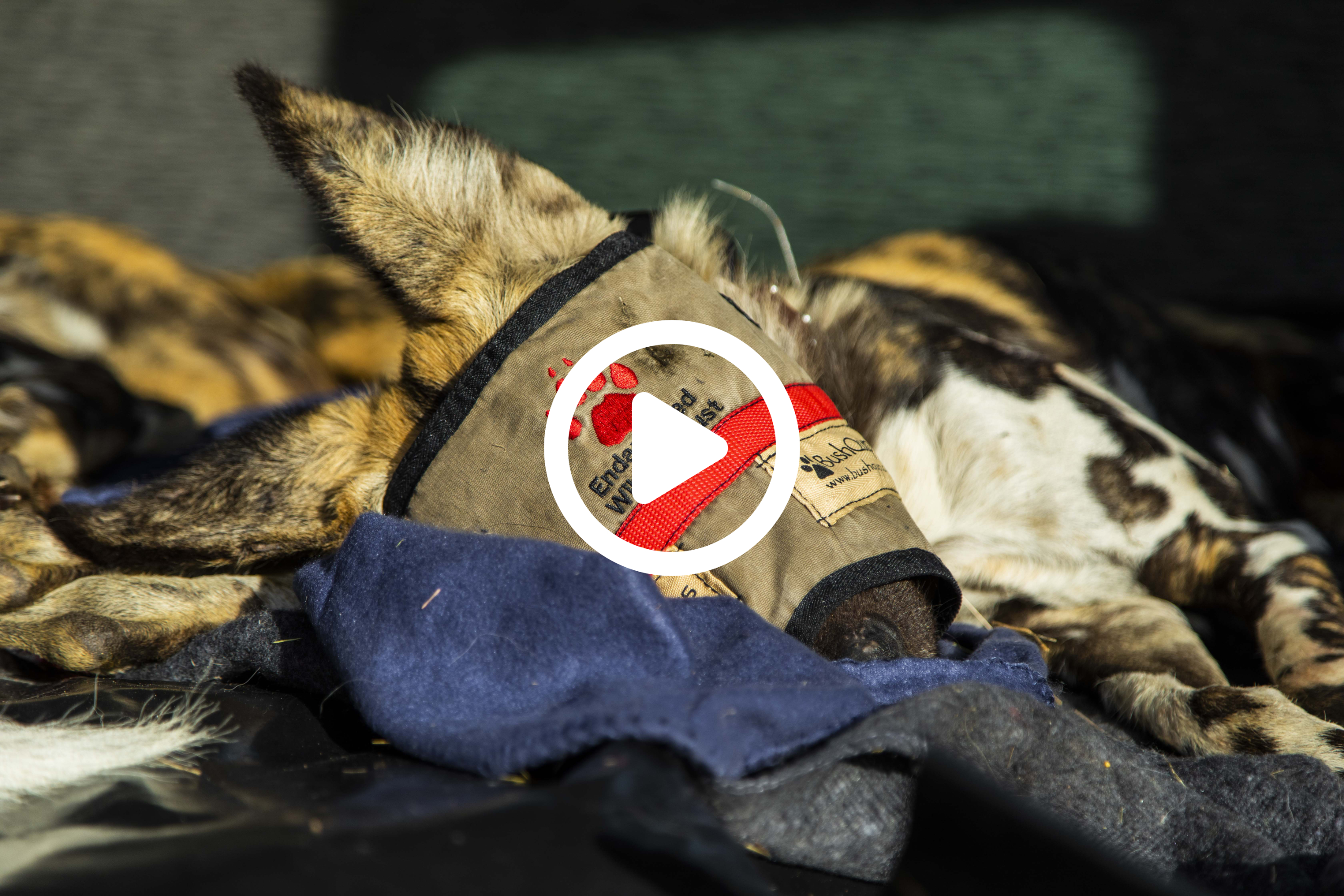Once roaming widely across Africa, African wild dogs (Lycaon pictus) are now one of the most endangered carnivores on the continent. Over the past 50 years, their numbers have severely declined and today only about 700 breeding pairs remain. In 2021, African Parks, along with Malawi’s Department of National Parks and Wildlife (DNPW) and the Endangered Wildlife Trust, reintroduced wild dogs to Malawi, after decades of the species’ absence in the country. Fourteen wild dogs were relocated from South Africa and Mozambique to Majete Wildlife Reserve and Liwonde National Park. Despite the challenges to ensure successful reintroductions of important species such as African wild dogs, African Parks, and its partners, remain committed to continuing the work in ensuring lasting and healthy populations of wild dogs in Malawi.
The Wild Dogs of Malawi – A Generation of Tenacity
It’s nearly two years since African wild dogs (Lycaon pictus) were reintroduced to Malawi, after decades of absence. Here we take a moment to reflect on the challenges and successes that have played out for the two iconic packs since their historic introduction to African Parks’ managed Majete Wildlife Reserve and Liwonde National Park in 2021.
Once roaming widely across Africa, African wild dogs are now one of the most endangered carnivores on the continent. Over the past 50 years, their numbers have severely declined and today only about 700 breeding pairs remain.
Across their range, wild dogs were historically persecuted as vermin and today continue to be impacted by human activity through the loss of habitat and natural prey species, accidental snaring and poisoning, and disease. Requiring wide-ranging habitats for their populations to grow and disperse, there are few areas of adequate size remaining in Africa to offer wild dogs the protection they need.
 © Matthew Moon
© Matthew MoonThe Wild Dogs of Majete and Liwonde
In July 2021, as part of the Endangered Wildlife Trust’s Wild Dog Range Expansion Project, wild dogs were returned to Malawi, after a 60-year absence. Majete Wildlife Reserve received six wild dogs from Mozambique and eight wild dogs from South Africa were received by Liwonde National Park.
On arrival, the alpha, or breeding, females in both packs were pregnant, creating a challenging situation for the teams on the ground who needed to monitor the dogs in an acclimatisation boma for a few initial weeks. The female from the Majete pack, however, aborted shortly after arrival, allowing for the usual acclimatisation period. On the positive side of this loss, the pack had a full year to become accustomed to their new environment, without the burden of raising pups.
In Liwonde, the pack was released early to allow the alpha female to find a suitable location to den and birth her pups, which resulted in a healthy litter of nine pups - immediately contributing to Malawi’s wild dog population.
With the arrival of pups, Liwonde’s pack predictably took to an inaccessible part of the mopane forest, making monitoring extremely challenging, and the monitors were forced to rely largely on camera traps for their observations. However, in Majete, without the pressure to hide and protect pups, the wild dogs chose to spend the majority of their time around high intensity tourist areas, delighting park visitors. Although not yet contributing to the species population growth, this pack had a significant impact on the tourism value of the park with their increasing relaxed and curious nature around vehicles.
Over the course of the year, Liwonde’s pack experienced a few losses to natural causes at a rate to be expected. Yet, the Majete pack, remarkably, remained fully intact. While this could have been due to several factors, it is likely the absence of dependent pups contributed to the higher survival rate of adults in the first year post reintroduction.
 © Matthew Moon
© Matthew MoonBy the 2022 denning season, Liwonde’s pack stood at 19 individuals. Although another adult was later lost, the pack had become familiar with the park and was doing well raising a new litter. Majete’s pack, after finally producing its first litter, stood at 15 individuals, and continued to stick to the main tourist areas.
In November 2022, tragedy struck in Liwonde. The GPS collars on the adults went quiet. After searching for the dogs, the monitoring team found the entire pack of 18 dead. Poisoned. The dogs were almost certainly not the targets, but crude poaching methods, like the use of poisons, are indiscriminate. In what would have taken a matter of minutes, the entire population of wild dogs in Liwonde had been wiped out and Malawi was back to one isolated wild dog population in Majete.
Lessons Learnt
Reintroductions are not an exact science. One cannot predict with certainty how animals will adapt to their new home or what challenges they will face.
With poaching activity rife across Africa, the level of threat is always a significant factor considered during the lengthy feasibility process undertaken for any species reintroduction. In Majete and Liwonde, African Parks’ teams work tirelessly reducing threats to a level that has seen most species in the parks thrive. To help prevent losses like that seen in Liwonde, African Parks is continually providing comprehensive poisoning awareness training as part of its basic field ranger course and anti-poison awareness workshops in communities surrounding the parks. Following all reintroductions, African Parks collects data on survival and loss rates and shares with forums such as the Wild Dog Advisory Group. This data increases knowledge to continually improve management decisions around the conservation and reintroduction of wild dogs.
Unfortunately, all it takes is one small pool of water laced with poison to have devastating consequences on an entire population of wild dogs.
At the end of December, Majete lost its first adult dog from the pack, to natural causes. This type of loss is to be expected and it’s extraordinary that all six adults had survived for so long, especially given the high density of other predators in this park. The loss of any individual, however, impacts the whole pack, and is a blow for those invested in the success of the species.
 © African Parks
© African ParksWhy Wild Dogs Matter
As apex predators, wild dogs regulate the population growth of prey species, which in turn impacts the integrity of the wider ecosystem and other species. Successful wild dog reintroductions not only benefit the conservation of the species, but also a host of other species that depend on the integral role that wild dogs play in an ecosystem. Furthermore, introducing wild dogs into national parks and reserves in countries like Malawi adds significant tourism value, contributing to the economy and livelihoods of thousands of people
Despite the challenges to ensure successful reintroductions of important species such as African wild dogs, African Parks, together with its partners including Malawi’s Department of National Parks and Wildlife (DNPW), remains committed to continuing the work it does in ensuring lasting and healthy populations of wild dogs in Malawi.
To protect and conserve wild dog populations in Malawi, African Parks works in partnership with the Endangered Wildlife Trust and the Wild Dog Advisory Group.
23 February 2023 - African Parks
Your Support Goes a Long Way
At African Parks we are working everyday to protect Africa's last wild landscapes. By donating to us, you are making a difference and are giving hope to people and wildlife across the continent.
Donate